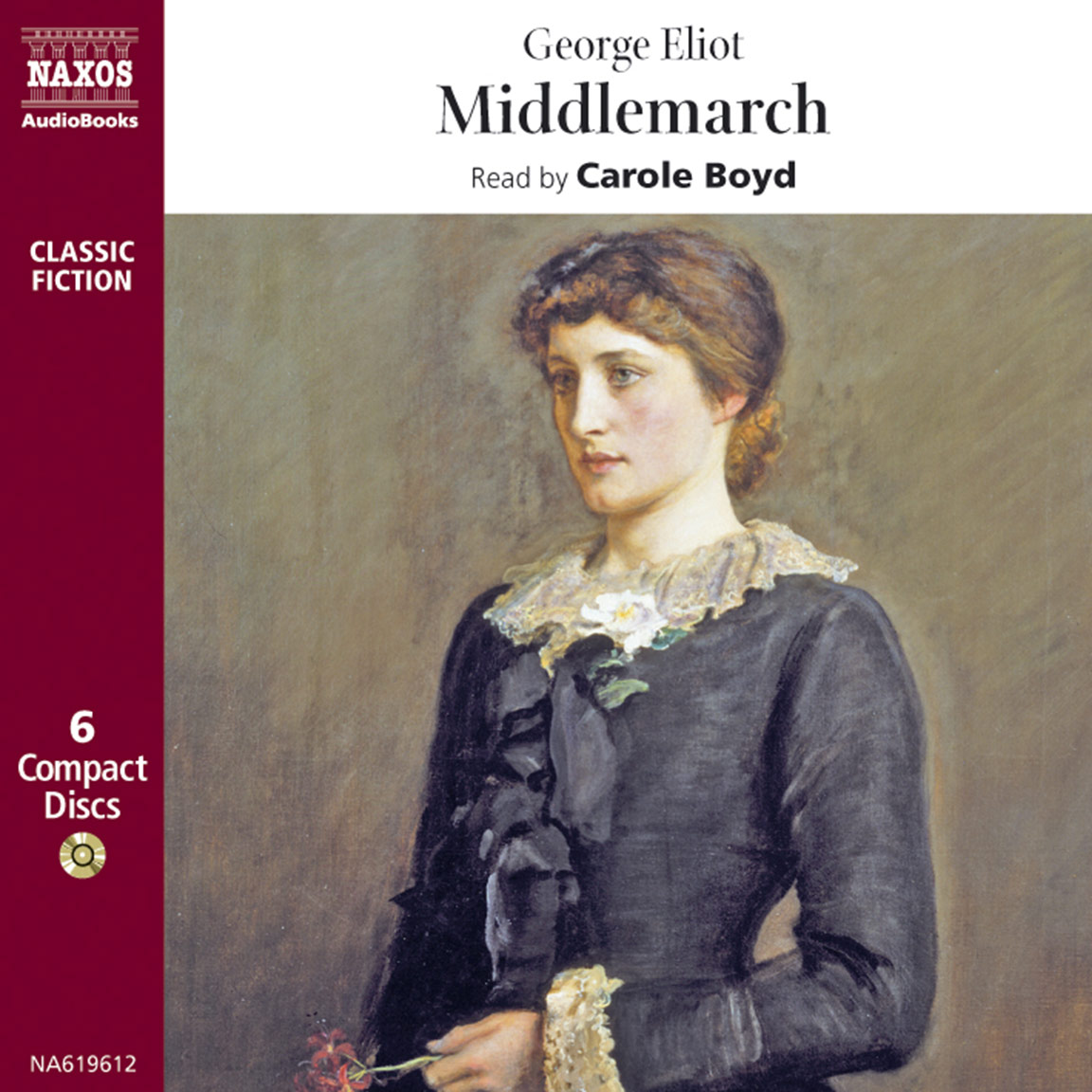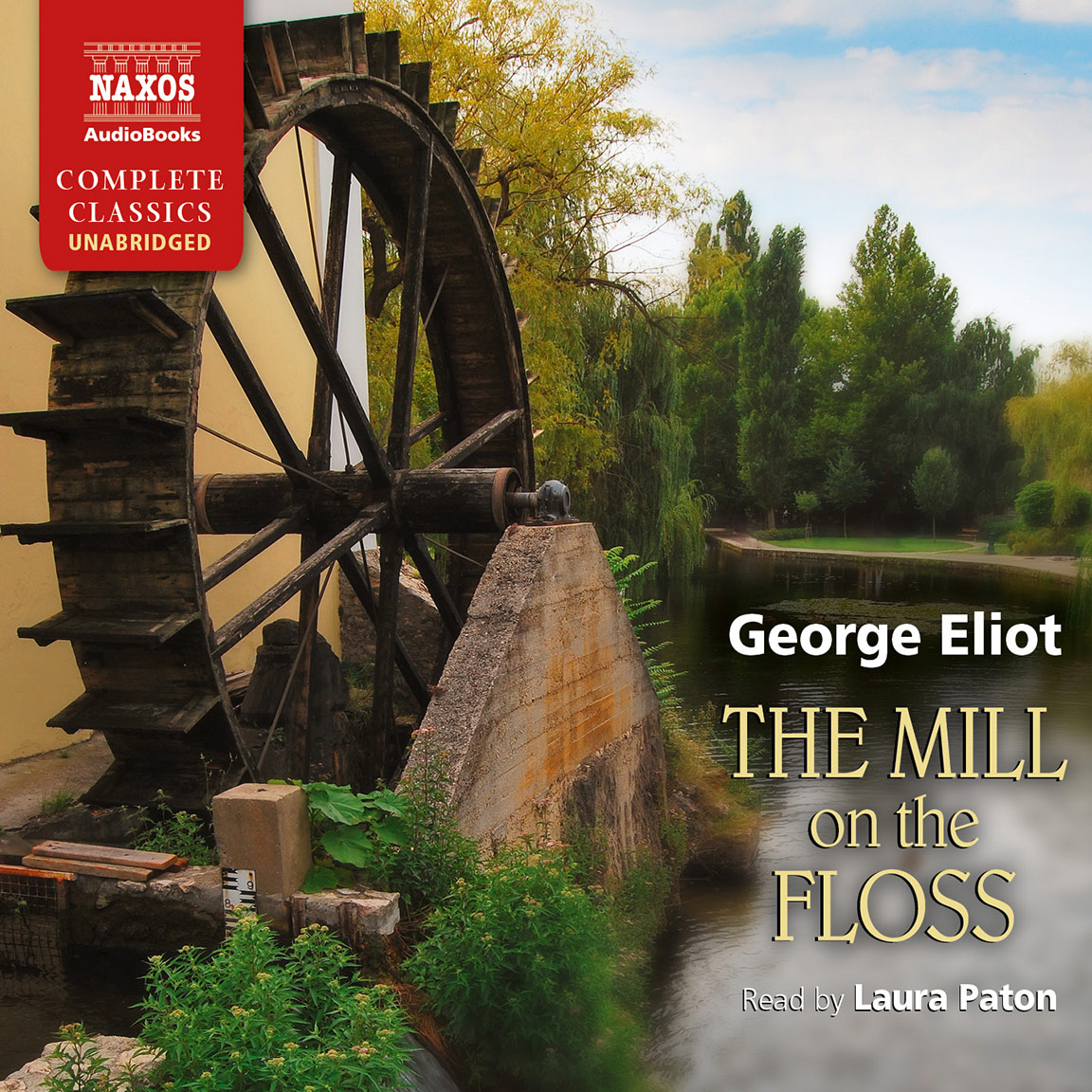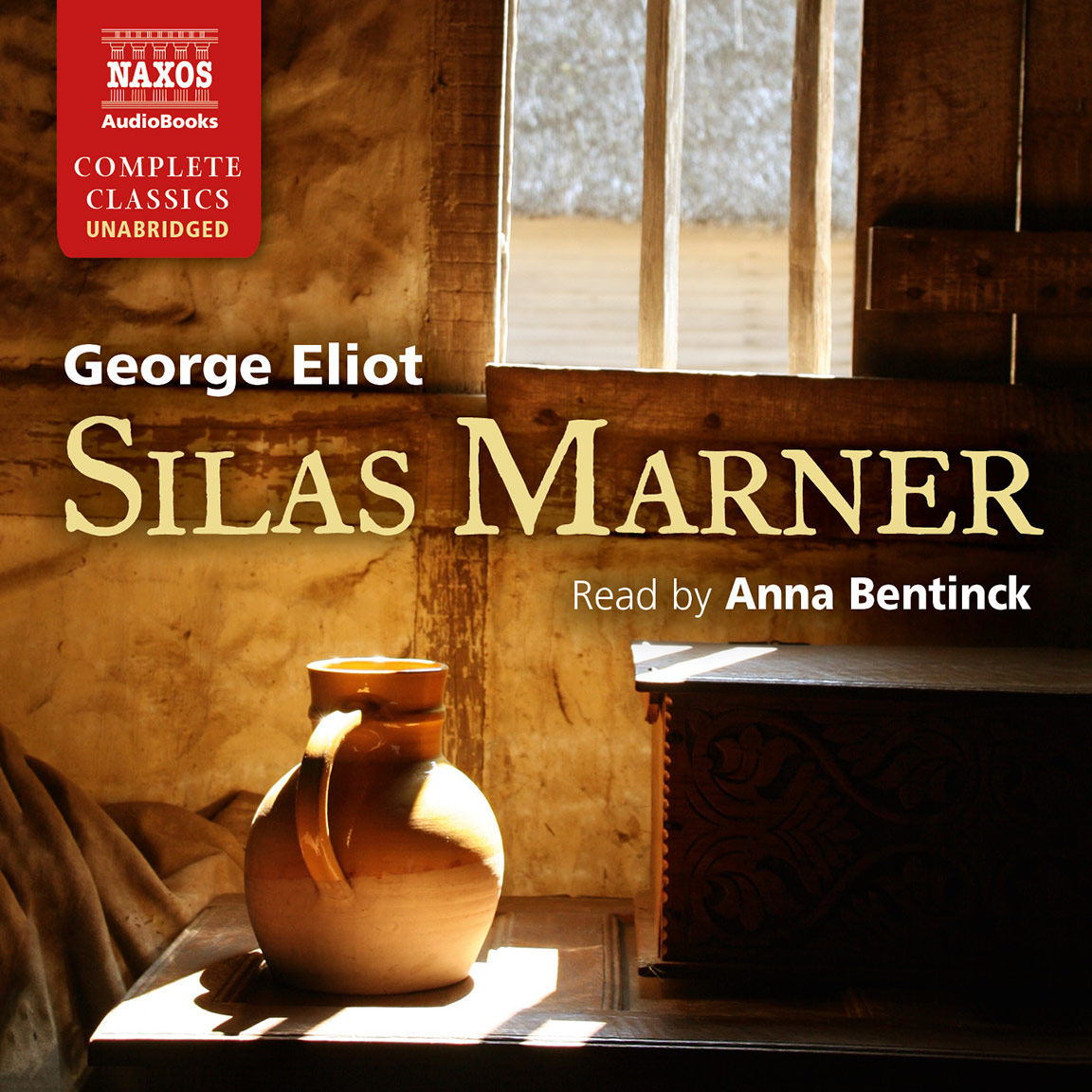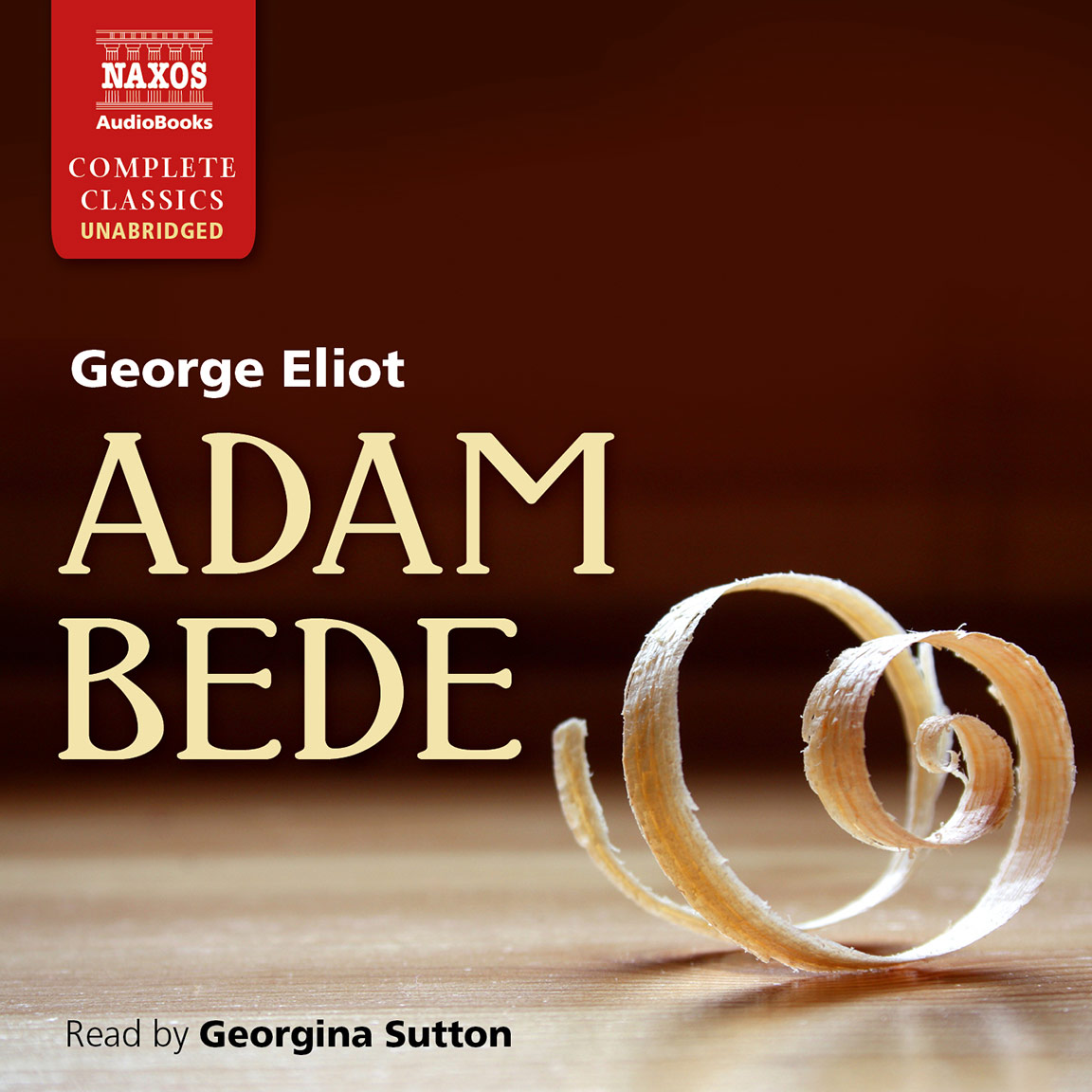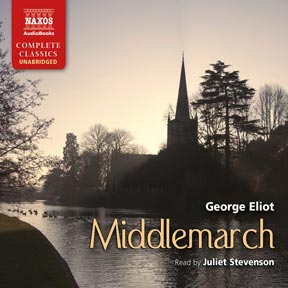
Audio Sample
George Eliot
Middlemarch
Read by Juliet Stevenson
unabridged
Dorothea Brooke is an ardent idealist who represses her vivacity and intelligence for the cold, theological pedant Casaubon. One man understands her true nature: the artist Will Ladislaw. But how can love triumph against her sense of duty and Casaubon’s mean spirit? Meanwhile, in the little world of Middlemarch, the broader world is mirrored: the world of politics, social change, reforms; betrayal, greed, blackmail, ambition and disappointment. Dorothea Brooke is an outstanding heroine; Middlemarch is filled with characters that are vivid and true, comic and moving. It is one of the greatest novels in the English language.
-
28 CDs
Running Time: 35 h 40 m
More product details
ISBN: 978-1-84379-439-4 Digital ISBN: 978-1-84379-440-0 Cat. no.: NA0021 Download size: 521 MB BISAC: FIC004000 Released: February 2011 -
Listen to this title at Audible.com↗Buy on CD at Downpour.com↗Listen to this title at the Naxos Spoken Word Library↗
Due to copyright, this title is not currently available in your region.
You May Also Enjoy
Reviews
SoundCommentary Starred Review
If it were possible for me to add to Virginia Woolf, who once said that Middlemarch is one of the ‘few English novels written for grown-ups,’ I would add that it is a novel for all kinds of grown-ups, because it spans such a variety of characters and emotions. For instance, romantic-leaning grown-ups will wait with baited breath for the scenes in which Sir James Chettam attempts to woo abstemious Dorothea, while her sister watches on, wishing to be in that spot, and for the adorable and feisty flirtation between strong and smart Mary Garth and Fred Vincy. Similarly, grown-ups who like a bit of schadenfreude in their literature will also enjoy where Dorothea’s actual marriage leads, and the smug and justice-driven will be positively gleeful when the beautiful but vacuous Rosamund Vincy gets stuck in a loveless marriage which she thought would prove more financially beneficial.
Middlemarch, written by George Eliot in 1874, also tackles the political issues of the day, and politicos in that period, and history buffs in ours, doubtless savor the wheelings and dealings which don’t seem to have changed much, though the issues and current events may have changed significantly. Cross-cutting the majority of these topics are those which will be familiar to those grown-ups who have surveyed the canon of English novels, particularly those written by women: friction between the classes and the dominance of men in nearly all realms. As could be predicted in a novel as long as Middlemarch, the romantically inclined may find points at which their breath is not quite so baited (a scene at the auction comes to mind), though the evolution of Eliot’s myriad characters and the frequent and surprising bits of humor make Middlemarch well worth it.
Middlemarch is British actress Juliet Stevenson’s magnum opus. The very accomplished British reader has a voice capable of magic: the blustery (and aptly named) Mr Bulstrode might as well be voiced by an entirely different person than that of the soft-spoken, genteel Celia Brooke, so adept is Stevenson in modulating her voice to capture the gruffest male and most retiring female. Another example is Stevenson’s reading of the character Mr Casaubon, Dorothea’s aging and erudite husband. When Mr Casaubon determines to propose to Dorothea, his letter expressing this intention is so formal that it is nearly impossible for Dorothea to figure out that he is trying to propose. Stevenson heightens this feeling by drawing out Casaubon’s words, adding in meaningful pauses and near-sighs, such that the listener is intensely drawn in to a dialogue with the muddling man. Middlemarch has something for all grown-ups, and Ms. Stevenson’s reading makes all the somethings that much better.
Joanna Theiss, soundcommentary.com
Juliet Stevenson is unmatched in her narration of George Eliot’s sweeping novel, which puts a lens to the fictitious English town of Middlemarch. Eliot’s complex plot takes the listener into various households and lives, revealing scandal, secret longings, and unexpected ties. Stevenson’s pleasant, friendly voice makes this relatively lengthy audiobook a listening delight. She enhances the narrative passages through her consistent enthusiasm and ease of language. Capturing the voices of Eliot’s characters adeptly, Stevenson shifts flawlessly from gruff elderly bachelors to flirtatious young women. She displays a keen ability for a range of British accents, perfectly sorting the servants from the aristocracy and everyone in between. Stevenson’s execution heralds the triumph of female spirit that Eliot embodies within this literary classic.
D.M.W., AudioFile
Having read her way through the Austen oeuvre, Juliet Stevenson now makes her mark on another Eng. Lit. classic, with a performance of Middlemarch that creates a vocal landscape of tones and accents: a highly sympathetic interpretation, given Eliot’s emphasis on the qualities that her characters’ voices reveal about them. Eliot’s ambitious study traces the causes and effects in a single Midlands community of the great upheavals in England’s economic, social and political life in the 1820s and 1830s. The writing is often gloriously comic – a deathbed, funeral and will-reading sequence is particularly entertaining – but for the modern reader it is the vivid misery produced by the mésalliance between clever but priggish Dorothea Brooke and the desiccated scholar Edward Casaubon that compels most powerfully.
Karen Robinson, the Sunday Times
Whether new to this classic 19th century novel or familiar with George Eliot’s elegant examination of English provincial life in the 1830s, listeners should not miss this splendid performance by actress and seasoned narrator Juliet Stevenson. Eliot uses multiple intertwined plots—the philosophical and romantic pursuits of Dorothea Brook, her uncle’s bid for Parliament, the tribulations of enterprising doctor Lydgate as he struggles to reform medical practices of the day while suffering an unfortunate marriage, and the unexpected alliance between Mary Garth and Fred Vincy—to address issues of her time from the rights of women to the institution of marriage and political reforms. Many other side stories and complications fill Eliot’s pages resulting in a novel rich in intriguing characters, both good and bad. Stevenson’s clear tones and precise accents transport listeners back in time and into the lives of the denizens of Middlemarch. Aged scholar Mr. Casaubon’s tedious pronouncements are made in a thin, whining voice that reflects his mean-spirited, pedantic nature. In contrast, Dorothea’s bright and crisp alto brims with energy and life. The other voices are equally distinctive and Stevenson’s incisive vocal portraits reflect the nature of each character. Mr. Brooke speaks quietly in slowly thoughtful and removed tones; Lydgate’s voice mirrors both his earnestness and his ultimate disillusionment. Fred Vincy is all sophomoric enthusiasms, while Caleb Garth’s stolid laborer’s drawl underlines his innate common sense. Among the women Rosamond Lydgate’s cool, self-centered, disparaging comments contrast neatly with Mary Garth’s sweet nature and sensible grasp of every situation. Stevenson’s elegant, heartfelt narration catches us up in these lives that explore Eliot’s social and moral concerns. Her sublime narration reflects every nuance of Eliot’s elegant prose. A stellar addition to Naxos’ collection of classics on audio.
Joyce Saricks, soundcommentary.com
’Destiny stands by sarcastic with our dramatis personae folded in her hand.’
Martin Amis has described George Eliot as the greatest writer in the English language and Middlemarch as the greatest novel. Now Juliet Stevenson has climbed this narrative Everest so that we can hear it as it was first enjoyed: read aloud in installments. My enduring memory of the book was of the idealistic Dorothea Brooke sacrificing herself on the altar of Mr Casaubon’s scholarly vanity, and of the self-confident Dr Lydgate falling for the feather-headed Rosamund. Any other novelist would somehow have got Lydgate and Dorothea together, but not, my twenty-something self was appalled to discover, George Eliot. Forty years later and aware of my aware of my failure to make the right choices, I am finding Eliot’s novel, her seventh, simultaneously provocative and deeply satisfying. Written in about 1870, but set in the yeasty early 1830s, its breadth is Dickensian, spanning attitudes to women, gambling, social reform, politics and evangelical religion. Don’t hurry your listening: enjoy Stevenson’s consistently intelligent and sensitive aural portraits of the vast cast.
Christina Hardyment, The Times
Winner of 2012 Listen List: Outstanding Audiobook Narration
Juliet Stevenson brings crisp clarity, a witty sensibility, and a charming tonal quality to Eliot’s masterpiece of provincial life. Through her deft management of pacing and tone, she reveals character motivation and illuminates the many themes of the novel. But most of all she reclaims Eliot for listeners who thought they did not enjoy classics.
RUSA
Booklet Notes
George Eliot, born Mary Ann Evans, plain country daughter of a land agent in the Midlands of England, is one of the most remarkable authors in English literature. This is a comment as much on her life as on her works. She outraged society, scandalised her family, and lived a personal life of serenely flagrant duplicity. She lived one of the most sexually unconventional and intellectually independent lives of her time, yet her works demonstrate a deep moral conviction concerning the virtue of integrity and the reward of virtue that would sit comfortably with many Anglican parsons.
She was close to both her parents – her father’s strength of character finds an echo in Caleb Garth – and must have found it hard to be at boarding schools in the area of her home. On her mother’s death in 1836, she took over the running of the household. However, her father, perhaps feeling a good marriage was unlikely, brought in extra tutors (especially in languages and her great love, music) and allowed her access to the library in the house for whose land he was the agent. Her capacity and appetite for reading may have been sated; but more likely it was whetted. And she began to question certain central tenets of the ardent, evangelical Christianity in which she had been brought up. This radical intellectual shift was exacerbated when the family moved near to Coventry and she became friends of the philanthropic, free-thinking Bray family.
Eliot tackled the
issue of reform
that had stirred
the country so much
in the 1830s, and
used her own life
for certain core
elements of the
characters’
progressions
Through the Brays she met other liberal thinkers, and began to write; her first work was a translation of an historical (rather than divine) life of Jesus. She had lost her faith, or at least the conventional religious aspect of it. Her father threatened to exclude her from the household as a result, but a compromise was reached whereby she would attend church with him in order to keep up appearances and keep the home intact. She stayed with him until his death in 1849, and then went almost immediately to Switzerland for eight months. When she returned she changed her name to Marian and determined to be a part of the literary world.
She went to London to stay in a boarding house run by the magazine publisher John Chapman, whom she had met through the Brays. He had published her first book and ran the radical quarterly The Westminster Review. Within 18 months Marian Evans was not just contributing articles and reviewing ‘silly novels by lady novelists’ (her phrase); she was assistant editor in a journal that was at the centre of London’s intellectual life. She was associating with some of the greatest thinkers and writers of her time, such as Herbert Spencer, who coined the phrase ‘survival of the fittest’ (and with whom she discussed the possibility of marriage). She also developed a close relationship with Chapman, who was living in the house with his wife and mistress. Eventually this relationship settled to a purely professional one; and it was around this time, in the early 1850s, that she met the remarkable philosopher and critic George Henry Lewes.
Lewes himself was in an unconventional marriage at the time, and, with his full knowledge, his wife had several children by Lewes’s best friend. However, Lewes was unable to obtain a divorce because he had been (scandalously) complicit in his wife’s adultery. Undeterred by any of this, the two physically unappealing (Lewes was described by Carlyle as ‘the ape’) but brilliantly gifted free-thinkers set off to Germany together. For the next 25 years they lived as husband and wife despite what the law or the Church might say about it – or Eliot’s brother, come to that, who was so incensed by his sister’s behaviour that he refused to communicate with her until sometime after Lewes’s death.
But it was Lewes who encouraged Eliot to write fiction, in the process moving away from translation and journalism. It was his encouragement and perpetual care for her (he never let her see a bad review) that allowed both the breadth of her understanding of people and her involvement with social and political activity to find expression. She chose her pseudonym partly in homage to him (not just the ‘George’ – the first syllable of the surname is surely for Lewes, too) and partly because it was ‘a good mouth-filling, easily pronounced word’. She published three short stories in Blackwood’s Magazine before publishing Adam Bede, which was such a success that several people claimed to be the real George Eliot – including one Joseph Liggins, who persuaded The Times that he had written the novel. George Eliot herself proved her claim, but was obliged to reveal her identity in the process. Strangely, this did not seem to prevent the reading public – who were so shocked at the ‘marriage’ of Lewes and Marian Evans that they refused to invite either of them to their houses – from loving her books; The Mill on the Floss and Silas Marner were as successful as her first novel.
Middlemarch, however, did not come easily. It was begun as one story in 1869, built around Lydgate and the Vincys, but was put off for over a year; it was then restarted, with the character of Dorothea taking the central position and the earlier story being incorporated into it. As she had before, Eliot tackled the issue of reform that had stirred the country so much in the 1830s, and used her own life for certain core elements of the characters’ progressions. She also revisited her detailed knowledge of the rural world she had inhabited as a child to give full weight to the landscape and the characters’ way of life. But in Middlemarch she made a conscious attempt to cover a huge range of themes: political, social, personal and religious.
Lewes died in 1878, but Eliot found comfort in an old friend, John Cross, and – to the surprise of many – married him in 1880, taking his surname. At least the marriage effected a reconciliation with her brother. The honeymoon was in Venice; but Cross was subject to occasional fits of depression, and he attempted suicide by jumping from their hotel window into the Grand Canal while Eliot was discussing his condition in another room. In the end, it was Eliot who died first, just months later. She was buried next to Lewes: it took 100 years before her wish to be buried in Westminster Abbey was granted.
She had tried to keep her femininity a secret in order to ensure her works were taken seriously, but she was obliged to reveal it to protect the legitimacy of her authorship. History has reversed that. Mary Ann Cross, née Evans, is almost universally recognised as George Eliot yet known as a woman, and regarded as one of the finest novelists in English. Such an unconventional mixing of the literary and the personal seems highly appropriate.
Notes by Roy McMillan
